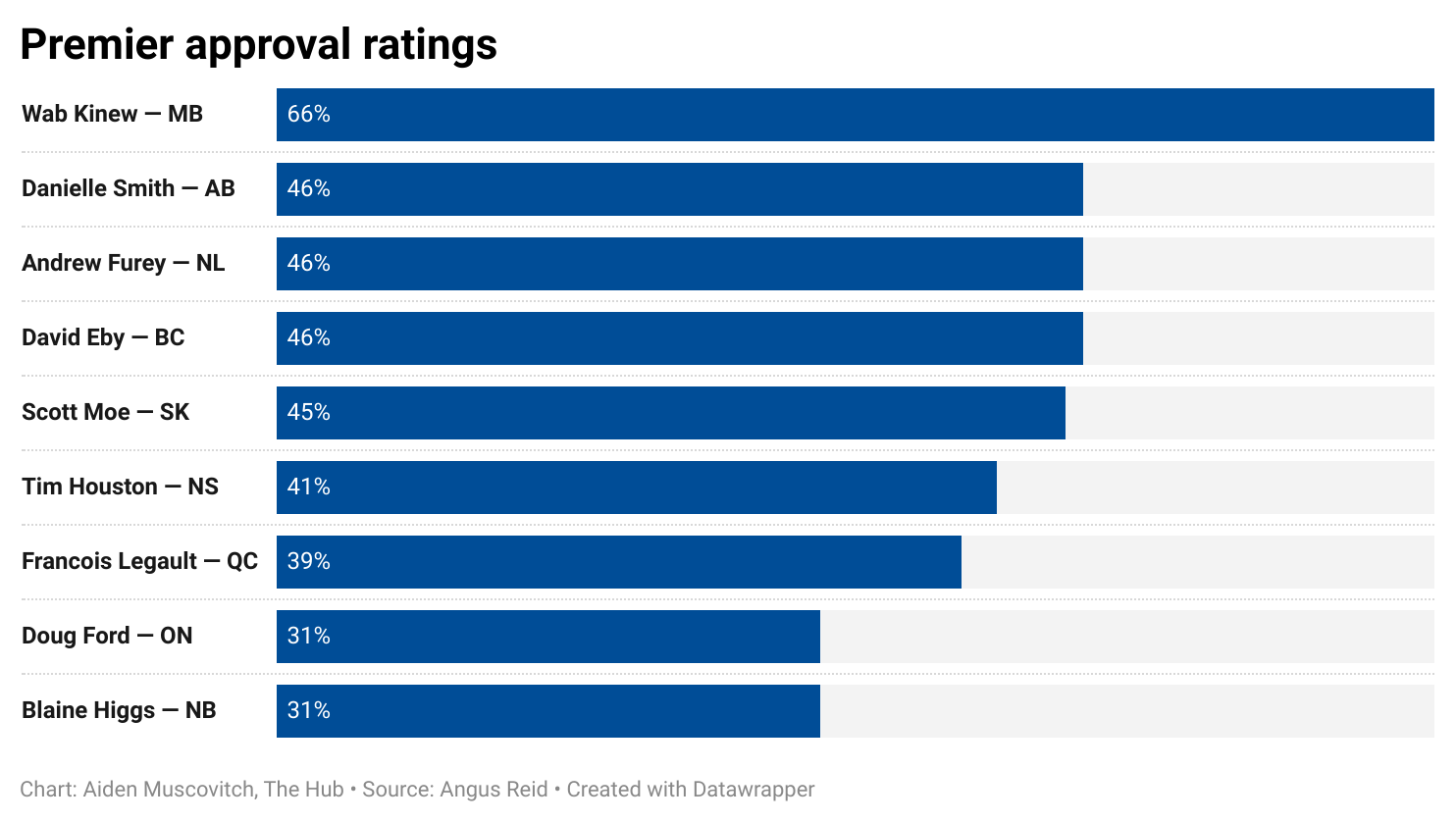This is The Week in Polling, your Saturday dose of interesting numbers from top pollsters in Canada and around the world, curated by The Hub. Here’s what we’re looking at this week.
Manitoba’s Wab Kinew is Canada’s most popular premier
The honeymoon phase in Manitoba continues as NDP Premier Wab Kinew polls as Canada’s most popular provincial leader. Kinew was elected just under a year ago, with health-care improvements as a top priority.
Behind Kinew is Alberta Premier Danielle Smith, the leader of Alberta’s United Conservative Party. At the beginning of November, UCP members will have their annual general meeting, where a vote on her leadership will occur. However, Smith goes into it with a whopping 85 percent approval rating among Albertans who voted for the UCP in the last election.
Smith is tied with Newfoundland and Labrador Premier Andrew Furey and British Columbia Premier David Eby. Ahead of B.C.’s election in October, recent polling shows Eby’s NDP neck-and-neck with John Rustad’s Conservatives.
In third-last place is Quebec Premier François Legault, the leader of the Coalition Avenir Québec. Legault was recently reported to have tried to persuade federal Bloc Québécois leader Yves-François Blanchet to vote with Pierre Poilievre’s Conservative Party in a non-confidence motion against Prime Minister Justin Trudeau. The vote failed, as the Bloc voted alongside the Trudeau government and Jagmeet Singh’s NDP.
Behind Legault is Ontario Premier Doug Ford, leader of the Progressive Conservative Party of Ontario. However, despite his low approval rating, Ford’s party is first in provincial polling, leading the Ontario Liberal Party by 16 percent.
The vast majority of non-homeowners in Canada’s major cities think they will never own a home there
A whopping 86 percent of residents of Vancouver who do not own a home feel like they will never own a home in their city. The same sentiment is felt by 77 percent of Torontonians who don’t own, 74 percent of Calgarians, and 70 percent of Edmontonians. This is most likely due to the country’s high housing costs.
According to the Canadian Real Estate Association, the average home in Vancouver now costs $1.25 million. In Toronto, the average home costs just over $1.1 million. Homes in Calgary and Edmonton are slightly cheaper, averaging about $586,000 and $400,000, respectively.
Trump and Harris in a dead heat in seven key states ahead of the 2024 presidential election
Republican nominee and former president Donald Trump and Democrat nominee Vice President Kamala Harris are tied in six swing states—Arizona, Wisconsin, Nevada, North Carolina, Pennsylvania, and Michigan—while Trump is ahead by one point in one other swing state, Georgia. Victories in these states can mean victory in the election.
In the 2020 presidential election, President Joe Biden won six swing states by narrow margins, while Trump secured the remaining state, North Carolina.
Despite the narrow races in the swing states, Harris is ahead of Trump in national polls by 2.8 percent, according to aggregator FiveThirtyEight.












